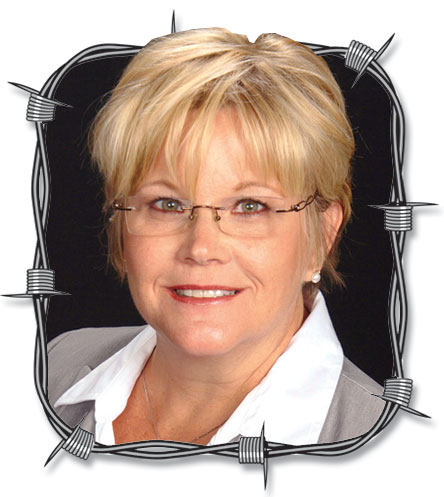For many of us, New Year’s resolutions are an annual tradition. And whether we resolve to stop eating junk food, put more money in savings, spend more on our cattle's nutrition or work harder with our children in the show-ring to better chances of a blue ribbon this summer, we as farmers all set our sights on something for the new year. And, it's in the follow-through of these goals that a resolution becomes a reality. This is especially true with those financial goals.
“As with every new goal we set for ourselves, following through takes tremendous discipline and usually means we have to sacrifice certain things in order to achieve our objectives,” said Joel Doelger, Director of Counseling for Credit Counseling of the Ozarks.
Doelger said things such as income, expenses, credit status, number of dependents and economic characteristics along with an individual’s priorities in life, at their farm and with their family usually dictates what they do with their money.
Write down exactly what you want to achieve beyond your current situation, especially if you operate a farm. This could include increasing your IRA contribution, investing in a mutual fund, passing the farm on to children or grandchildren, and making estate plans. Often the help of legal assistance in areas such as estate planning and farm transfer are essential.
Doelger offered three action steps that are essential in following through with any financial resolution.
Be your own bookkeeper
Many of us keep financial paperwork stuffed in a shoebox or crammed in a desk drawer with no semblance of order. Get a few folders and an inexpensive, locking file cabinet. This will help you categorize bills to pay, bank statements, tax information, medical and insurance records and receipts for large purchases.
Destroy debt
Start this process by taking inventory of your credit card balances, the interest rate on each account, and the minimum monthly payment. There are three common approaches to attacking debt. The strategy that will save you the most money is to pay off the accounts with the highest interest rates first. A second approach is to pay off accounts with the smallest balances first, to keep you motivated to make the necessary sacrifices for aggressive debt payment. A third approach is to develop a strategy to pay accounts down to less than 30 percent of their credit limits, so they will not have a negative impact on your credit score.
Get serious about saving
Becoming a consistent saver is the key to buying a home, having enough income for retirement, giving more to charity or just being prepared for those unexpected expenses that invariably arise, especially when you farm. The extent to which you can save depends on your individual situation, but strive to save 10 percent of your net income each pay period.
Mary Catherine Harcourt is with Credit Couseling of the Ozarks.





